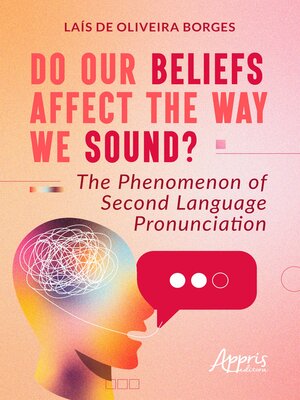Do Our Beliefs Affect the Way We Sound? the Phenomenon of Second Language Pronunciation
ebook
By Laís de Oliveira Borges

Sign up to save your library
With an OverDrive account, you can save your favorite libraries for at-a-glance information about availability. Find out more about OverDrive accounts.
Find this title in Libby, the library reading app by OverDrive.



Search for a digital library with this title
Title found at these libraries:
| Loading... |
Age of first exposure to the target language has been shown to be a strong predictor of phonological attainment (e.g., Pullen, 2012; Piske et al., 2001 & Moyer, 1999). Results from these studies support the Critical Period Hypothesis, that is, the notion that there is a neurological period, ending at the onset of puberty, beyond which mastery of a second language is no longer achievable (Lenneberg, 1967). The prominence of the Critical Period Hypothesis in the field of Applied Linguistics has diminished the impact of research on socio-psychological differences in second language acquisition. A neurologically based component such as age of learning onset is not, however, the single determining factor of second language ability. Little is known about the influence of socio-psychological factors on pronunciation performance. This book attempts to bridge this gap in the literature by examining the effects of beliefs about second language pronunciation on phonological performance. The book concludes that certain beliefs associated with affective factors appear to be detrimental to L2 phonological attainment.






